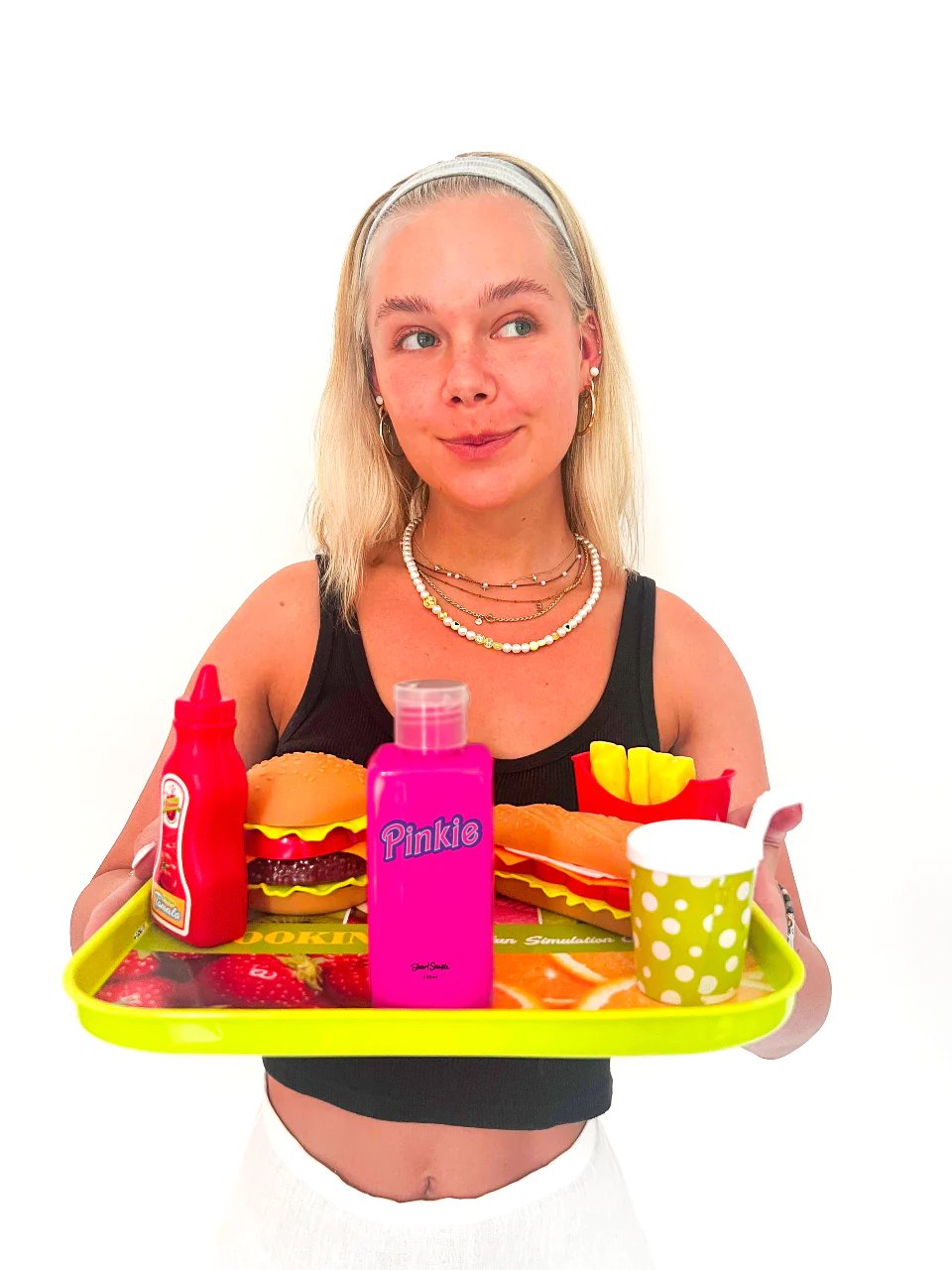
Artist Stuart Semple is once again taking a stand against color exclusivity, releasing a new fluorescent shade of pink he’s dubbed Pinkie – The Barbiest Pink in protest of Mattel’s trademarking of “Barbie Pink,” which gives the toy company exclusive rights to the doll’s signature color. The new paint comes in a box that recalls the Barbie doll packaging.
“Nobody should own a color. Nature has already made all the colors, and corporations claiming them is just completely and utterly ridiculous,” Semple told Artnet News in an email. “The amount of money Mattel makes out of licensing every year is extraordinary. No color should be owned by a corporation, especially a corporation that is making billions of dollars at a time when artists and creators are really, really struggling.”
The art supply’s arrival on the market, first reported by Alethea Magazine, is timed to the hotly anticipated July 21 release of Barbie, directed by Greta Gerwig and starring Margot Robbie in the title role, with Ryan Gosling as the doll’s famous boyfriend, Ken. The film’s production reportedly triggered a global shortage of Rosco fluorescent pink paint, and Mattel recently listed a life-size version of Barbie’s hot pink Malibu Dreamhouse on Airbnb to promote the expected blockbuster.
“Consequently, [Mattel] now have a proprietary claim over anyone using the same color pink for decorating which will be a blow to creators everywhere,” the product page for Pinkie warned, noting that that the product’s release will “ensure we all have access to special colors.”
Artist Stuart Semple is selling a new pink paint called Pinkie, in protest of Mattel’s trademark of Barbie Pink. Photo courtesy of Culture Hustle.
For years, Semple has taken a stance against what he calls “color hoarding,” and the idea that any one person (or company) should have the exclusive use of a color.
In 2016, Anish Kapoor made a deal with U.K. nanomaterials firm Surrey NanoSystems to develop artistic applications for the company’s groundbreaking Vantablack coating, a super black that absorbs nearly all light. The contract gave Kapoor and Kapoor alone the right to use the material—initially created by chemically growing long, tightly packed carbon nanotubes in a super heated chamber, but later developed as a spray paint—in works of art.
That didn’t sit right with Semple, who believes that everyone should have access to every shade of the rainbow—and that anything short of that imposes harmful limitations on creativity.
Black 3.0 applied to a sculpture. Image courtesy of Stuart Semple.
So, in response, Semple—who had long created his own art supplies for use in his practice—began selling a line of superlative paints and pigment powders called Culture Hustle that were available for anyone except Kapoor, starting with a bold shade dubbed Pinkest Pink, before moving on to Diamond Dust (proclaimed the world’s glitteriest glitter), Black 2.0, the color-changing unicorn paint Phaze, and the even blacker Black 3.0.
Purchasing any of Semple’s products requires checking a box reading: “By adding this product to your cart you confirm that you are not Anish Kapoor, you are in no way affiliated to Anish Kapoor, you are not purchasing this item on behalf of Anish Kapoor or an associate of Anish Kapoor.”
Nevertheless, the British Indian sculptor managed to get his hands on some of the Pinkest Pink, sharing a photo on Instagram of an open jar of the powdered acrylic pigment, into which he had dipped his middle finger.
Artist Stuart Semple is selling a new pink paint called Pinkie, in protest of Mattel’s trademark of Barbie Pink. Photo courtesy of Culture Hustle.
Semple’s newest product—marketed as “the flattest, mattest highly pigmented fluorescent pink acrylic paint”—carries similar purchasing prohibition, aimed this time at Mattel, which is banned from using Pinkie.
“While this pink is extremely ‘Barbie-ish,’ I deliberately wanted to make it even better than theirs,” Semple said. “It is SO pink that it’s even pinker than the Pinkest Pink. And I did that to show that everyone can have a color that is way better than theirs.”
Pinkie is available for sale beginning July 28, and costs $34.99, including tax, for five fluid ounces, or 150 milliliters.
More Trending Stories:
An Israeli First-Grader Stumbled on a 3,500-Year-Old Egyptian Amulet on a School Trip